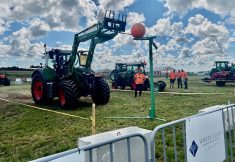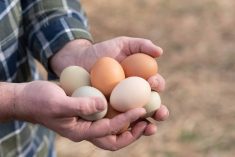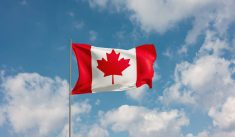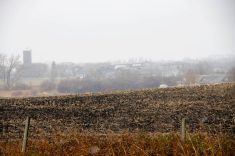It is a privilege to write in this space, and this week I thought it was appropriate to amplify a strong First Nations voice, while providing a bit of historical context.
Days before having to address the nation, and press from across the globe, Cadmus Delorme was touting the grain farm on Cowessess First Nation.
As chief of the band, Delorme has done well representing where he is from.
I’ve had the chance to hear him speak several times – we attended the University of Regina around the same time, where he was active on campus, and in the time since he’s continued to be what I’ve always observed him to be: a strong community advocate.
Read Also

Spoken questions are what make it an interview
Recently, I was exchanging emails with the media email account at a government agency, hoping to reach a source for…
During an interview for a recent Western Producer article, he spoke out about challenges Indigenous people face entering agriculture, while expressing optimism in the work his First Nation is doing.
“We share a land that produces the best fertilizer and food for us to all succeed together. We have so much potential as Indigenous peoples, we’re still here,” he said at the time.
Not long after that story was published, Cowessess First Nation was announcing 751 unmarked graves near a former residential school operating in the area from 1899 to 1997.
Until the 1970s, the Catholic Church was responsible for the cemetery.
In the immediate aftermath of the announcement, Delorme called on the pope to apologize and for the Canadian government to “move quicker” on reconciliation efforts.
These are tangible calls to action, and they should be acted upon immediately. We should listen to Delorme.
It’s also imperative we continue to recognize the role agriculture played in colonialism.
I wrote about this a few weeks ago, and was happy readers reached out afterwards. Collectively, we still have so much learning to do.
In Cowessess, kids were being forced into residential schools while their parents were swindled out of their lands by corrupt, ill-intentioned settlers.
After signing Treaty 4, members of the First Nation farmed and raised livestock on their lands, but by the 1880s nearby settlers arriving in the area were desiring portions of it.
By the early 1900s, after concerted efforts by politicians and local settlers, 41 per cent of the reserve land had been surrendered. This included most of its open arable land, and agriculture potential was severely stalled.
Literal decades went by, but the land claim issue remained an important one for Cowessess members.
In 1996, the first land claim was settled, and the band has since been able to obtain land back – some of which has been used for agricultural operations.
The forced surrender of First Nations lands was often bureaucratic, but it still helped contribute to cultural genocide. The Canadian government continues to fight First Nations land claims.
These stories, like the painful one recently shared by Delorme, need to be told as part of truth and reconciliation.
A legacy of poor policies lives on, but there is a path forward, and Delorme put it well when recently summarizing plans for Cowessess.
“Our end goal is to be farm leaders, and good neighbours who want to work together, grow together, and better understand one another. Agriculture can be that connection between all of us.”
Anyone affected by experiences related to residential schools, or are triggered by latest reports, can find support. The Indian Residential School Crisis Line is available by calling the 24-hour line: 1-866-925-4419.















